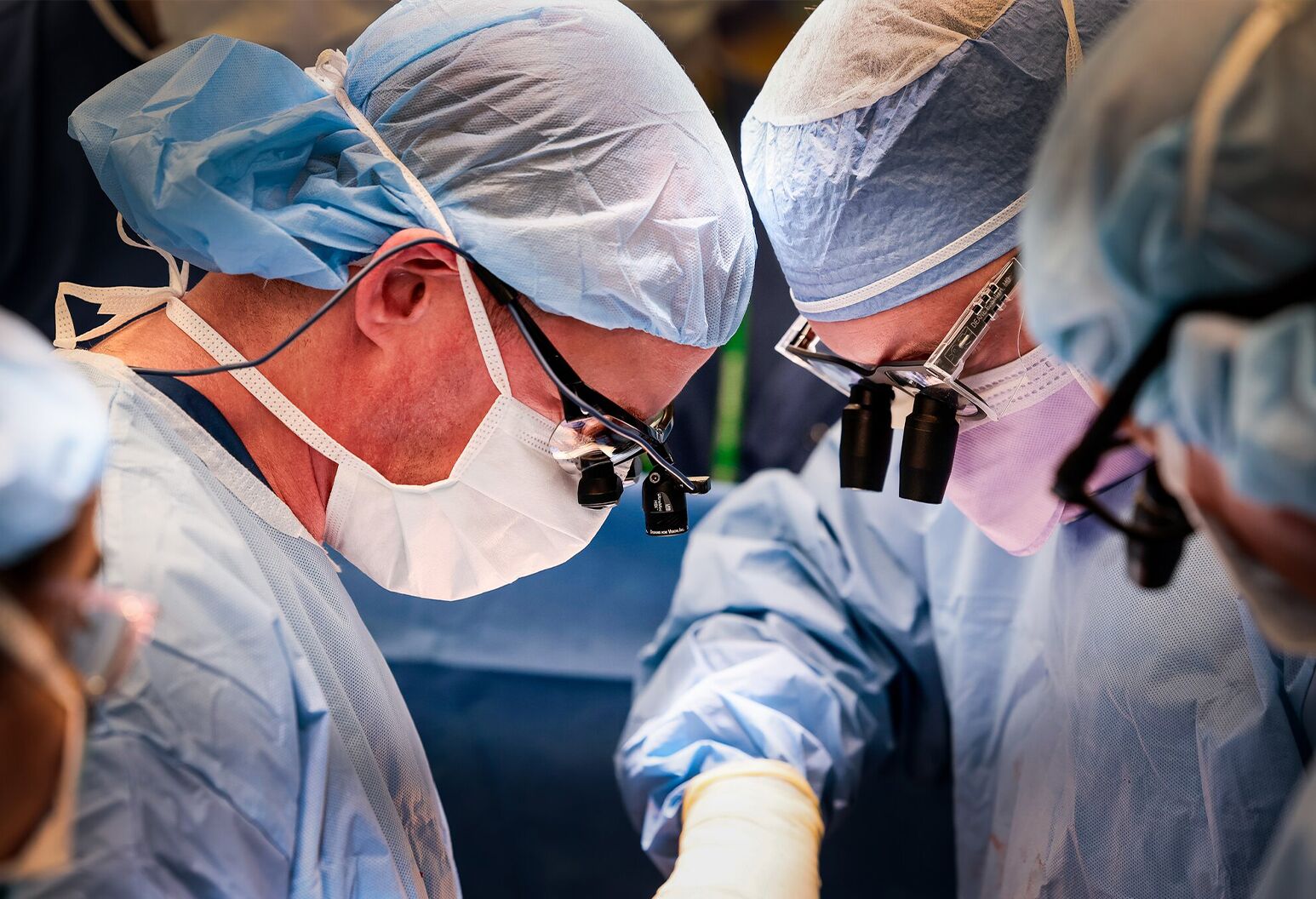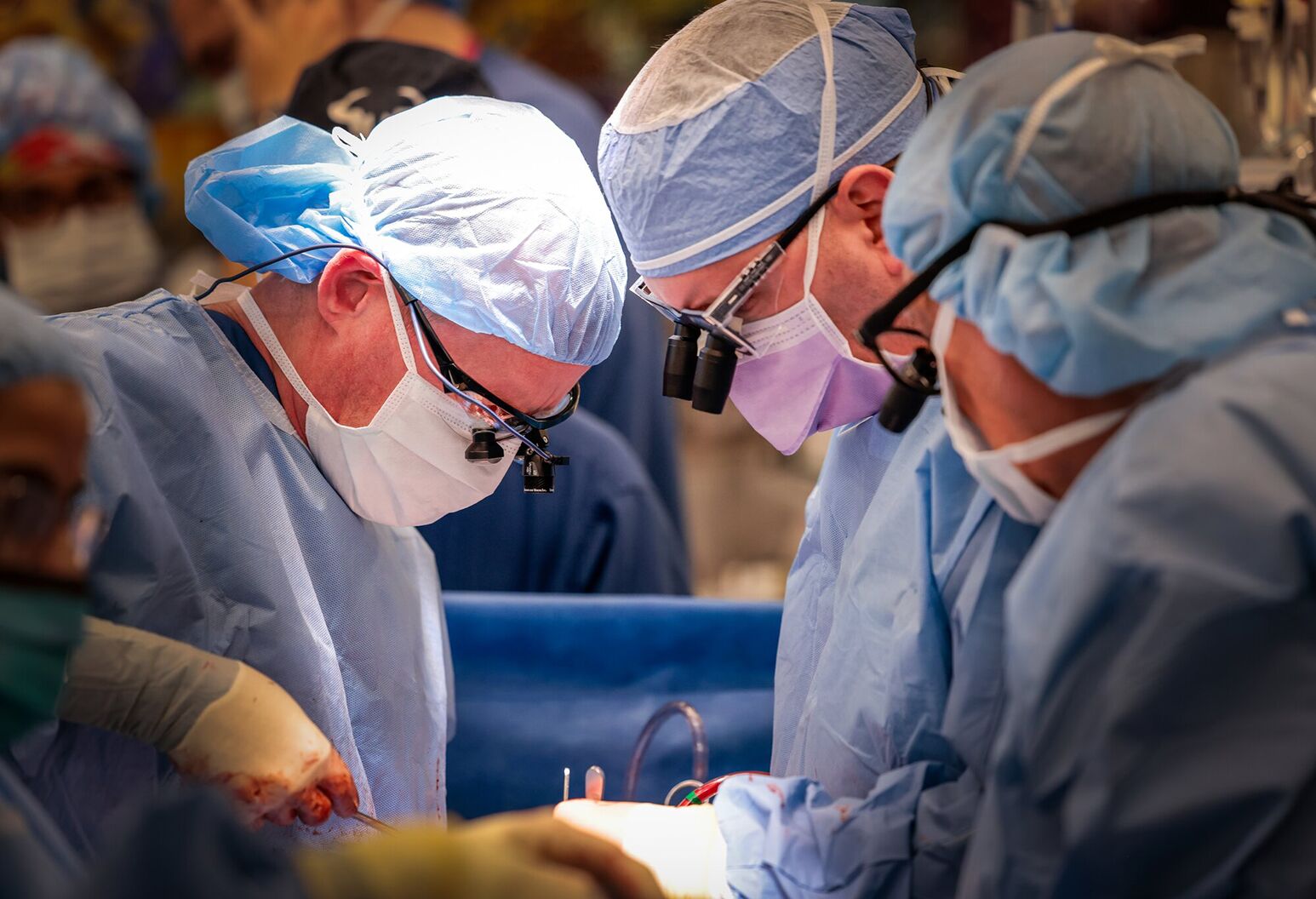Pediatric Heart Failure & Transplant Program

What sets us apart
The Pediatric Heart Failure & Transplant Program, part of Cohen Children's Heart Center, is led by a nationally acclaimed team of top pediatric specialists and is the only one of its kind on Long Island—bringing lifesaving care close to home.
Our multidisciplinary team includes cardiac surgeons, cardiologists, transplant coordinators, pharmacists, nutritionists, psychologists, child-life specialists, social workers and rehabilitation therapists, all specializing in the care of children with chronic heart conditions. Backed by the expertise of Northwell’s Transplant Institute—New York’s fastest growing organ transplant program*—we’re a leader in advancing transplant care and research.
We offer leading-edge therapies for the medical and surgical management of pediatric heart failure, including:
- A full array of ventricular assist devices (VADs), a lifesaving resource for patients who previously had to travel to other boroughs or beyond to receive it.
- Advanced systems like CardioMEMS, a pulmonary artery monitor that allows us to actively monitor your child’s heart from the comfort of your home—reducing hospitalizations and complications.
- Access to leading-edge therapies and clinical trials. Cohen Children’s was one of the first pediatric heart centers in the country to make mavacamten (a medication for hypertrophic cardiomyopathy) available to children older than 12 through a clinical trial. We are also actively enrolling patients with certain types of hypertrophic cardiomyopathies in national trials.
Comprehensive, personalized care
Our pediatric heart failure and transplant program brings together experts from over a dozen subspecialties, ensuring every aspect of your child’s care is addressed. Our dedicated team of specialists works together to create a personalized care plan tailored to the unique needs of your child.
Meet our team
- Timothy Martens, MD, PhD, is the surgical director of Pediatric Heart Failure and Transplant Program. Over the past two decades, he has been involved in hundreds of adult and pediatric heart transplants, as well as translational research in tissue engineering and groundbreaking trials in mechanical circulatory support and cell therapy for heart regeneration.
- Jake Kleinmahon, MD, medical director of Pediatric Heart Failure and Transplant Program, brings extensive experience in pediatric heart transplants and heart failure. He previously served as the director of pediatric heart transplant and heart failure at Ochsner Hospital for Children in New Orleans, the only such program in Louisiana, and has managed more than 200 heart transplant patients.
- Jeffrey Gossett, MD, vice president and system chief of pediatric cardiology, specializes in the care of children with heart failure, cardiomyopathies and those needing heart transplantation. These include patients with congenital heart disease as well as those with heart muscle problems. He is currently the chairman of the Pediatric Heart Transplant Society and has been an active researcher in these fields for many years.
- Todd Sweberg, MD, is the medical director of pediatric cardiac critical care. He brings extensive experience to this role. He previously served for many years as Cohen Children's medical director of pediatric critical care and, for over a decade, as director of extracorporeal membrane oxygenation (ECMO). He is an active member of the American Heart Association's Get with The Guidelines - Resuscitation Pediatric Research Task Force and the site principal investigator (PI) for several National Institutes of Health-sponsored studies.
- Tanya Perry, DO, is the director of the Ventricular Assist Device Program and a pediatric cardiac intensivist. Prior to joining Cohen Children’s, she practiced at Cincinnati Children's Hospital, a highly regarded, high-volume center for cardiac surgery and heart failure. She has extensive experience managing ventricular assist devices in pediatric and congenital heart disease patients. Dr. Perry maintains leadership roles in national pediatric heart failure and critical care societies including the Advanced Cardiac Therapies Improving Outcomes Network (ACTION).
- Lisa Gilmore, NP, transplant coordinator, has been providing cardiac care for more than 30 years. Her passion lies in caring for children with heart failure, cardiomyopathy and heart failure.
- Isaac Hammond Jr., PA, ventricular assist device coordinator, has more than a decade of experience with pediatric and adult congenital heart surgery. He specializes in surgical first assisting, hybrid program implementation, operational efficiency/excellence, and cardiac and lung transplant procurement.
- Stephanie Saisanas, LSW, is our cardiac social worker dedicated to helping patients and families coordinate all of the services they need. She is dedicated to providing culturally competent care and advocacy for diverse patient populations.
Navigating the journey to transplant
Whether your child is in end-stage heart failure or has a complex congenital heart condition that cannot be improved by medical treatments, our team provides compassionate care and support through the transplant journey. For children who need mechanical circulatory support during the waiting period, we offer four different types of state-of-the-art ventricular assist devices (VADs)—Berlin Heart EXCOR, HeartMate 3, Impella, and Centrimag or extracorporeal membrane oxygenation (ECMO)—as a bridge to transplant that is tailored to your child's size, diagnosis and needs for both short- and long-term assistance.
What if my child needs a heart transplant?
Although a heart transplant is a complex procedure, our dedicated transplant coordinators, cardiologists, and heart surgeons are here to support your child and your family throughout each step. Here’s a look at what to expect during the transplant journey.
- Getting started: Our transplant team will meet with your child and the family to explain what to expect, answer questions, and develop an individualized care plan for your child.
- Preparing for transplant: We perform a thorough workup with our multidisciplinary team using blood tests, imaging, and cardiac catheterization, as well as spend plenty of time talking to your child and family as we partner with you to prepare for transplant.
- Waiting period: During this time, whether your child is waiting for an organ in the hospital or at home, we work together to make your child the best possible transplant candidate. Our team is here for you with any questions or concerns.
- Transplant day: On the big day, our team will take care of everything and keep you informed so you can focus on supporting your child.
- Recovery: After the transplant, our multispecialty team manages your child’s care to keep their new heart healthy and functioning well. When your child leaves the hospital, we provide close follow-up care.
We’ll be here for you every step of the way to make this journey as comfortable as possible for your child and your family.
Frequently asked questions
What is pediatric heart transplant?
Pediatric heart transplant is surgery that replaces a diseased heart that is unable to keep a child healthy and alive with a healthy heart from an organ donor.
Does my child need it?
Heart transplants are only recommended for children who have serious heart conditions like advanced congenital heart disease or cardiomyopathy (a disease of the heart muscle) and cannot survive without one. A successful transplant can help sick children feel better, be more active and enjoy a higher quality of life. In fact, many children recover quickly and return to school and other activities soon afterward.
What should we expect before surgery?
If your child is a candidate for a heart transplant, they'll be put on a waiting list for a donor heart. They will likely need to remain in the children’s hospital while they await a transplant. This allows our team to monitor them closely to ensure they are in the best possible condition for transplant.
What happens during surgery?
Heart transplant surgery usually lasts about six hours but may take longer. During surgery, your child will be connected to a heart-lung machine that keeps oxygen-rich blood flowing through their body until the donor heart is stitched into place and can start pumping on its own.
Several temporary monitors and tubes are put in during surgery to keep track of your child’s oxygen levels and blood pressure, and to monitor the health of their new heart. A tube placed through the mouth or nose keeps the stomach empty and helps prevent nausea and vomiting. Other tubes or drains help your child breathe and prevent fluid from accumulating around the heart and lungs after surgery.
What does recovery look like?
After surgery, your child will be taken to the cardiac intensive care unit (CICU) where they will be closely monitored and cared for by the pediatric intensive care and transplant teams. Fluids and medication will be administered through several intravenous tubes, and a urinary catheter will help them empty their bladder. As their condition improves, they’ll be able to get up and move about, and begin physical therapy. In most cases, the sooner they get up and start moving after surgery, the less likely they are to have complications.
Your child will be discharged from the hospital as soon as they’re ready to return home. Children who have had a heart transplant usually stay with us for about two weeks, but your child’s stay could be shorter or longer depending on their situation.
What are the risks?
As with any major surgery, there are risks. However, we carefully weigh the risks versus the benefits when making a decision about a child needing a transplant. These can include rejection of the transplanted heart (when the immune system fights against the heart), infection, bleeding, pain or blood clots.
What is rejection?
Rejection is when the child's immune system recognizes the transplanted heart as something foreign and starts to fight against it. Rejection is a large spectrum and can look like anything from a few sick heart cells when we look under the microscope, or the most severe forms when the heart struggles to function. Your child will be on medication to prevent episodes of rejection, and we use the latest technology to be able to diagnose an episode of rejection in the early phase so we can effectively treat it.
Commitment to research
We are committed to improving the care of our heart failure and heart transplant patients. Dr. Jake Kleinmahon is Cohen Children’s Medical Center’s principal investigator for the Pediatric Heart Transplant Society Study (PHTS) and Dr. Tanya Perry is Cohen Children's principal investigator for Advanced Cardiac Therapies Improving Outcomes Network (ACTION). Dr. Jeffrey Gossett is the principal investigator for the mavacampten study.
View our published studies:
*Source: Organ Procurement and Transplantation Network, Transplant year 2022-24 by Transplant Center


